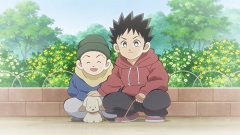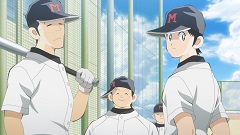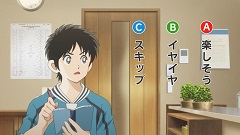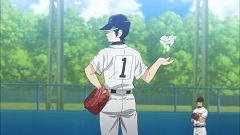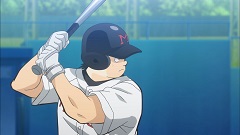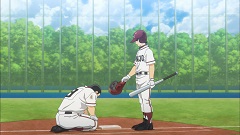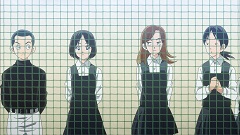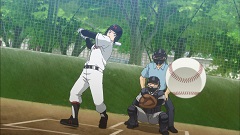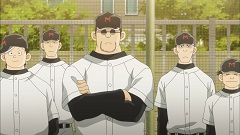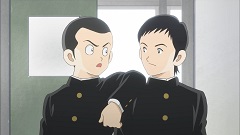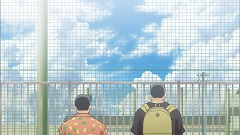Love is in the air for seemingly every teenage character in Mix’s growing cast, and with no baseball game to distract them, this episode is entirely dedicated to complicating the show’s relationship chart. Even the cold open is a miniature romantic farce, with minor characters Nishimura and Arisa deluding themselves into viewing a conversation between their rivals as something sinister. Arisa proves far more adept at this deception, especially when you factor in the cluelessness of every male character to make it on screen before the OP. Honestly, I don’t remember the names of all Otomi’s would-be suitors, but when [Touma’s friend] and [Otomi’s classmate] came sliding down the hill and into an already crowded scene, I was kind of apprehensive. Sure, I got a chuckle out of the various characters’ desperation and exhaustion, but this felt like the opener to a lightweight episode – or so I thought. Thankfully, “Just a Walk” ended up being one of Mix’s best episodes yet, and it’s all thanks to Haruka Oyama.
Until this point, Haruka hadn’t done much except fill the role of girl next door, but this episode gave her much more to do than that. It’s not as though this episode changes her proximity to the main characters’ house, or makes her any less attractive to Souichiro and Nan-chan (who’ve been frequenting the ramen place where she works part-time). But it does give her a lot more personality, and reveals her past acquaintance with Touma, who she met at a funeral at age three. Turns out she’s got a killer memory, having recalled their encounter from all those years ago – and she likes how he’s grown up. This sheds new light on her cryptic question to Otomi several episodes ago: “Are you worried?” Haruka was feeling her out even then, probably suspecting their shared crush on Touma, and now she’s making her move. Her method of sending him an invitation he can’t refuse was too cute, to the point that I started laughing when Touma automatically greeted her with the go-ahead phrase “good morning,” and she responded with a salute. Their date poses a problem for the hapless kid, as he understands the significance of Sou’s sudden ramen addiction, but after falling into her trap, what choice does he have?
Instead of getting sappy, Mix maintains its wry sense of humor even as the two go out; Touma’s impatience with their multiple train rides leads him to make several comments about the “walk” they were supposed to take. Said walk is mostly uneventful, but the show threads together Haruka’s admission of recognition with a separate funeral story, which depicts three year old Touma as a cheerful kid who had trouble processing his mom’s passing. This detail launched me back to a related one from early in the episode, where Touma remarked to his stepmother that Sou and Otomi were “depressed and unsociable” when he first met them. Connecting these dots was my favorite part of this week’s Mix, as they indicate that Touma still may not have grieved for his mother’s death. To have held on to the idea that two children mourning the loss of a parent were “unsociable” paints a picture of repression, at least in my view. Suddenly Touma’s isolated outbursts on the baseball field make a bit more sense, as well… I really do love Adachi’s character writing, and episodes like this one are great vehicles for it. Now, if only I knew how many more episodes we could expect before the show takes a hiatus.




